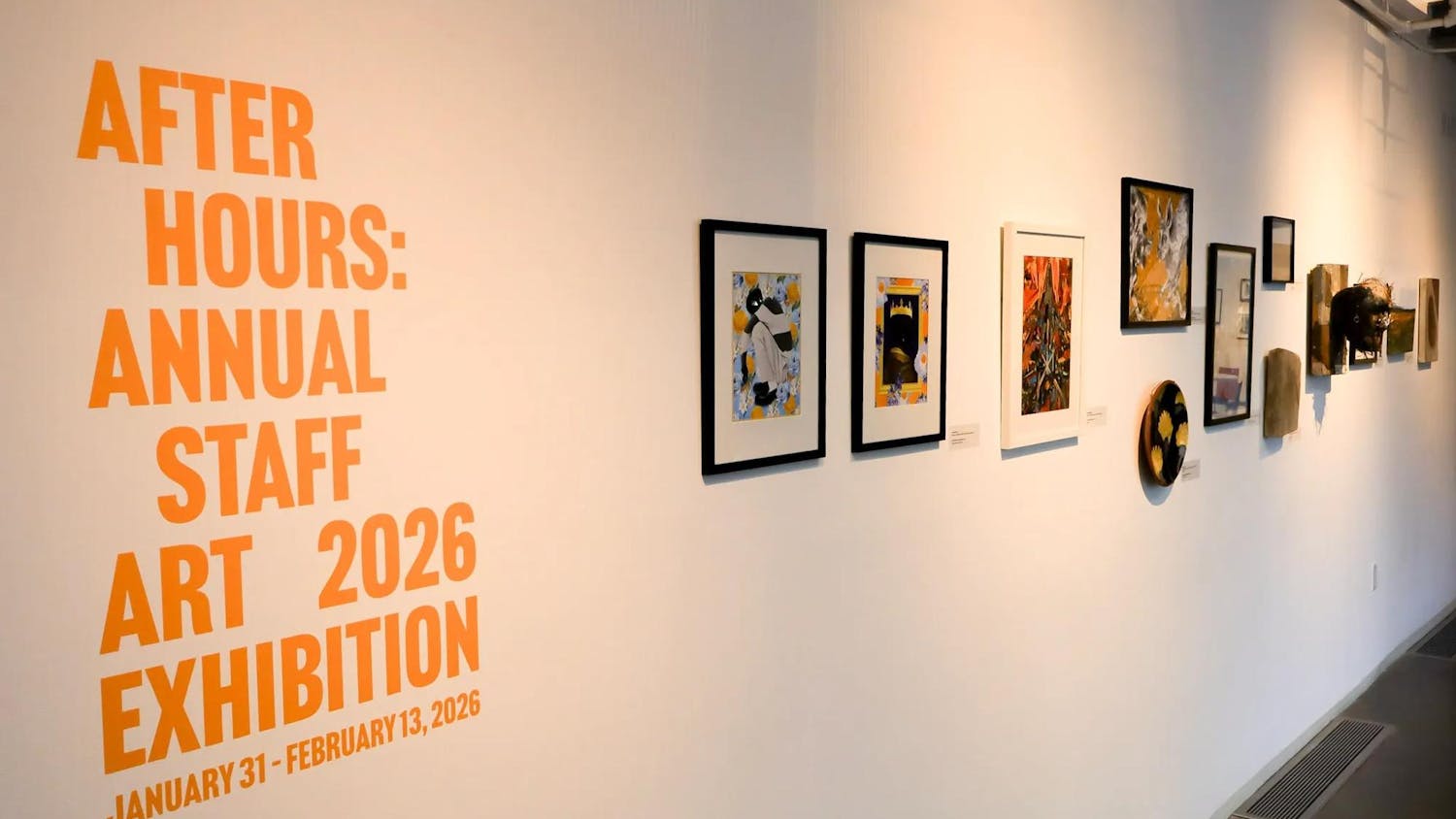Let’s talk about sex, baby. Let’s talk about … Pornography?
No, this isn’t just a reference to Salt-N-Pepa’s hit single, but an apt descriptor of PHIL 1576: “Pornography,” a popular philosophy class at the University.
This semester, interested students had their pick of several classes exploring sex, intimacy and love, including PHIL 1576 and ENGL 0201F: “Sex, Sin, Sonnets: The Poetry of Love and Desire.” The Herald spoke to the professors teaching these two courses and their students about how these topics are addressed in the classroom.
Philosophy and Linguistics Professor Richard Kimberly Heck, who developed and teaches PHIL 1576,offered the course for the first time two years ago. When Heck taught a unit on pornography in PHIL 1490: “Philosophy of Sex” in 2020, they realized that there was too much content to cover in just one unit. They then developed a syllabus for a new pornography-centered course.
According to the course syllabus, PHIL 1576 attempts to answer one driving question: If “pornography has become a form of sex education, what kinds of lessons does it teach?”
The course will also investigate whether pornographic media can be considered art or “whether pornographic media even admit of serious analysis,” the syllabus reads.
Throughout the semester, students in the course will answer these questions by exploring past pornography controversies, the differences between feminist and misogynistic pornography and the aesthetics of pornography. In addition to pornographic films, the course assigns readings by social activist Gloria Steinem, author and activist Ellen Willis and legal scholar Catharine MacKinnon.
PHIL 1576 “is a rigorous philosophy course with a lot of long philosophy papers,” teaching assistant Kate Kuli ’25 said. “It’s not just watching porn.”
In previous years, the course’s enrollment was largely dominated by women, which Heck explained was unusual for a philosophy class. But this year, “there are a lot more perspectives represented” in class discussions, Heck said.
While few peer institutions offer pornography-related courses, Heck believes it is an important topic to study in academic settings because it “has just become a part of the fabric of people’s lives in a way that it wasn’t when I was growing up.”
It is “important to really think critically and seriously” about pornography, Heck said.
Heck expressed that pornography’s negative reputation is largely influenced by the academic community’s “warped perceptions” of the industry. Many institutions teach about pornography to discourage students from engaging with it, rather than analyzing it from a neutral lens, they said.
“I make it quite clear to my students that we’re not here to be judgmental,” Heck said. “We’re not here to say, ‘Pornography is evil.’ Maybe it is, maybe it’s not — I’m here to help them think this through.”
Kuli added that Heck “creates a super safe space for students to talk about these things in a way that (includes) both very rigorous debate (and is) also very respectful.”
Jared Dunn ’24, a student in PHIL 1576, registered for the course because it was unlike any other he had taken in the past. In the course, Dunn hopes to gain a deeper understanding of how pornography influences people’s perspectives on sex.
Dunn emphasized that the class is not for everyone, as discussing pornography in an academic context might make some students uncomfortable. But Dunn has enjoyed the course so far and “will be thinking about it even after it’s over,” he said, adding that he discusses class concepts and materials with peers long after the class ends.
Although Kuli is the course’s TA, she is also taking the course for a grade. “I am a student at Brown — when else in my life am I going to take a class about porn?” she said.
Kuli explained that pornography can reinforce “problematic” societal and sexual norms that can influence intimacy. “Deconstructing that (idea) and understanding it is the first step to building a better future on an individual scale — and even on a structural scale, too,” she said, adding that the course cultivates hope for healthier discussions about and depictions of sex and intimacy.
ENGL 0201F: “Sex, Sin, Sonnets: The Poetry of Love and Desire” is taught by Benjamin Salt GS as a part of his PhD program. Poetry is “such an interesting vehicle for expressing desire,” Salt said, highlighting the role of rhetoric, metaphors and figurative language in writing about sexuality.
ENGL 0201F explores how poets like Shakespeare, Sylvia Plath, W.B. Yeats and G.M. Hopkins think and write about “the body, shame, excess, lust, pleasure/pain and ecstasy,” according to the syllabus.
“Our conceptions of love and desire might be really different (now) than what they were in the 20th century, the 18th century and even (during) Shakespeare’s career,” Salt said. “Notions of what love might be — how it’s expressed, who it’s between, sexual categories and gender categories — all shift” over time.
“Sex, love and desire are intrinsic facets of the human experience, yet they are frequently treated as shameful taboos,” wrote Amina Fayaz ’26, a student currently registered for Salt’s seminar, in a message to The Herald, “While the course initially drew me in due to (its) comprehensive focus on poetry, I have come to find the most value in the candid discussions about sex.”
Fayaz — who said she grew up in a conservative household — wrote that ENGL 0201F has made her “less ashamed (of) engaging in conversations about this integral aspect of the human experience.”
Fayaz appreciates Salt’s “kind, supportive personality” and inclusion of diverse poets. “In a class about sex, which is fundamentally personal and colored by the diverse identities we all embody, affirming all perspectives is important,” she wrote. “Classroom discussions about sex foster empathy.”

Leah Koritz is a senior staff writer covering science & research. Leah is from Dover, Massachusetts and studies Public Health and Judaic Studies. In her free time, Leah enjoys hiking, watching the Red Sox and playing with her dog, Boba.





